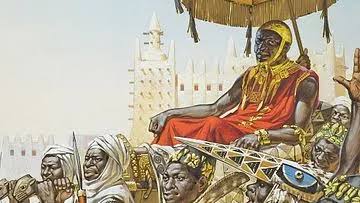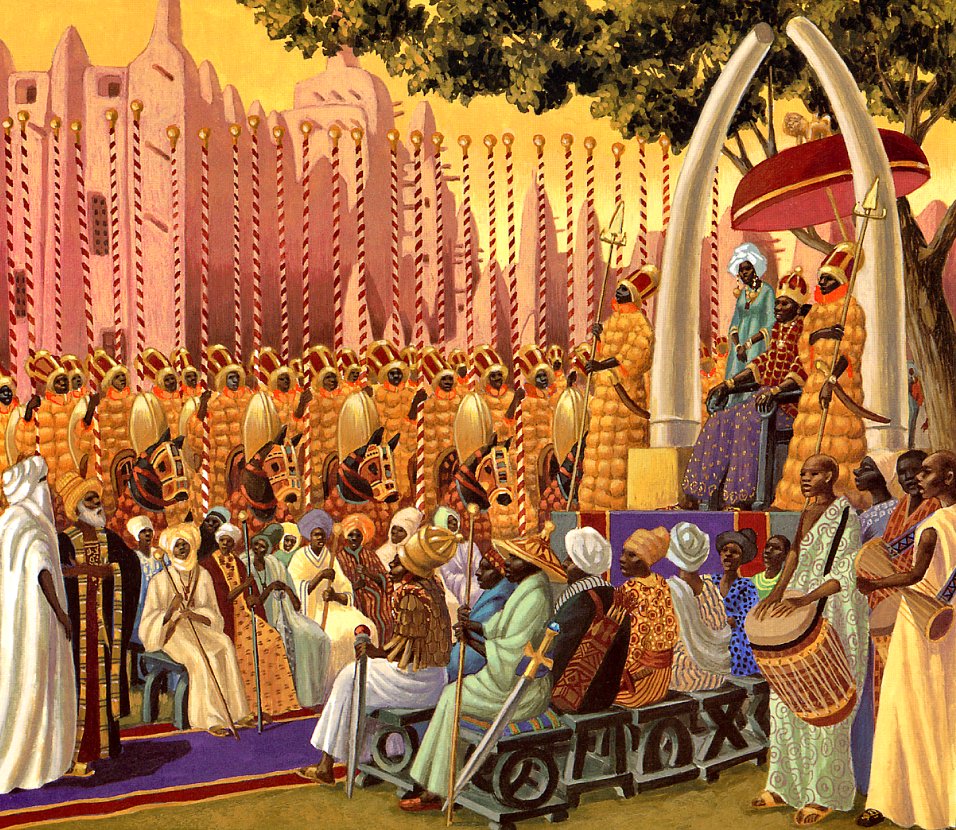When asked about the richest men in history there are a few names that immediately come to mind. People like John D. Rockefeller, Bill Gates, and Warren Buffet. However, people hardly speak of Mansa Musa; the African King who was recently named as the richest man that ever lived. You may have probably never even heard of him. He is referred to as “King of Kings” due to his wealth.
 Mansa Musa I of Mali ruled as King in the fourteenth century and with an inflation adjusted fortune reaching $400 billion no one stands close in terms of wealth. He is definitely the richest man to have ever lived. If he were in the present day none of the men to have sat of Forbes “richest man in the world list” might have such an opportunity.
Mansa Musa I of Mali ruled as King in the fourteenth century and with an inflation adjusted fortune reaching $400 billion no one stands close in terms of wealth. He is definitely the richest man to have ever lived. If he were in the present day none of the men to have sat of Forbes “richest man in the world list” might have such an opportunity.
Celebrity Net Worth website recently compiled a list of 24 richest people to have ever lived. Though the list has been advertised as the top 25, there are 26 names on the list. The list spans over a period of 1,000 years but there are a few peculiarities separating it from other richest people lists. Firstly, out of the 25 spots, 14 are taken by Americans. Secondly, there are no women on the list. Thirdly, only three members of that elite group are alive today.
Gold and Salt
Mansa Musa I ruled in the early 1300s and made his fortune from the exploitation of gold and salt production off the Malian Empire which he governed. Most of the mosques he built in his prime still exist till date. After his demise his descendants could not hold on to the wealth for too long, losing it to wars and invading armies.

Mansa Musa I was so rich he never traveled on a budget. He was said to travel on a caravan that stretched as far as the eye could see. His entourage would usually consist of 60,000 caravans, 1,000 attendants, 500 slaves bearing gold staffs, a hundred camels bearing gold, and so many of the Emperor’s personal musicians. He once made a journey to Mecca to fulfill one of the pillars of Islam. The journey was over 4,000 miles and it was at no small cost.

About his net worth, Times Jacob Davidson wrote, “There’s really no way to put an accurate number on his wealth.” It is simply impossible. He was so rich that he was included on the 1375 Catalan Medieval Map, one of the most important of European Medieval history.
Facts About Mansa Musa
- Mansa Musa was so rich, his servants wore fine Persian silk and brocades.
- He was a very successful military leader; during Musa’s 25-year-rule the Mali Empire more than tripled in size; and had significant influence in several modern day countries including Mauritania, Senegal, Nigeria, Burkino Faso and Chad.
- Musa conquered more than 20 major cities in his lifetime. These included the prestigious Songhai capital of Gao on the Niger river, one of the oldest trading centres in western Africa.
- Mansa is actually a TITLE; Though many people believe that Mansa Musa was the man’s name, “Mansa” is actually a Mandinka word that roughly translates to “ruler,” “sultan” or “emperor,” so Mansa Musa really meant something like Emperor Musa, and he was the 10th Mansa of the Mali Empire.
- The name Musa is a Muslim name, as the Mali Empire was of the Islamic faith. Musa is the biblical equivalent to the name Moses.
- Because Musa’s great generosity, he accidentally brought the economies of the cities he came across to ruins. Because he gave away so much gold, he inadvertently inflated the price of the precious metal so much that it took a full decade for gold to stabilize in value.
- He Built a mosque every Friday; Mansa Musa’s 1324 trip to Mecca is believed to have been the most lavish project he undertook in his whole life. He carried with him a caravan with 60,000 people, 12,000 of them slaves, and thousands of camels. One of his greatest virtues was his piety, though, and wherever he passed, he had to worship in a mosque. Along his 4,000-mile, one year long journey to Mecca, Musa didn’t encounter mosques along the road; so wherever Friday found him, Mansa Musa would build a mosque.
-
The university of Timbuktu, the first in Africa, was built under the Reign of Mansa Musa.
- He is only man in history to have complete control over the price of gold along the Mediterranean societies by his actions along his pilgrimage.
- It took only two generations for the Mali Empire to burn through it all and waste their financial resources; after he died.

